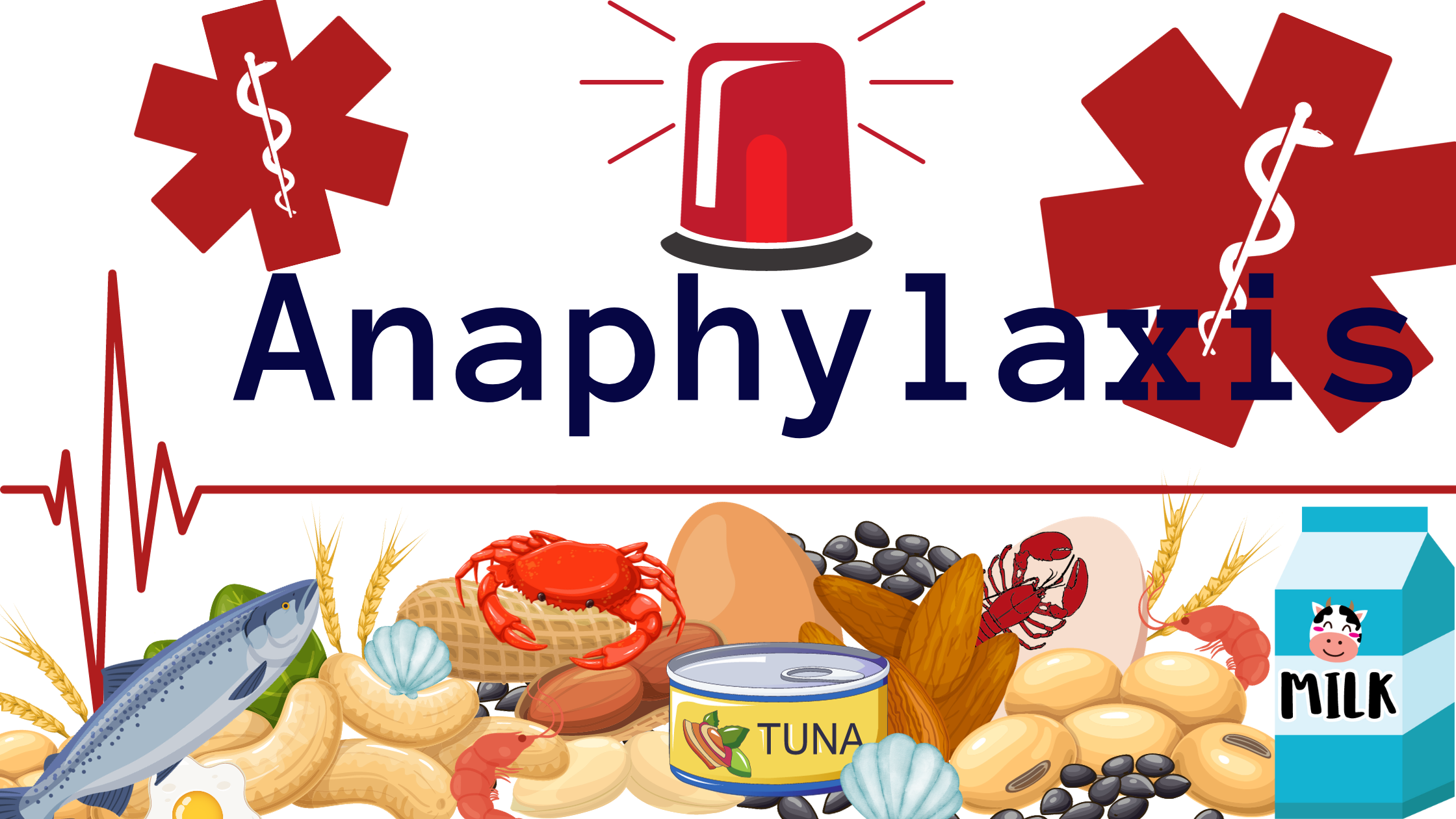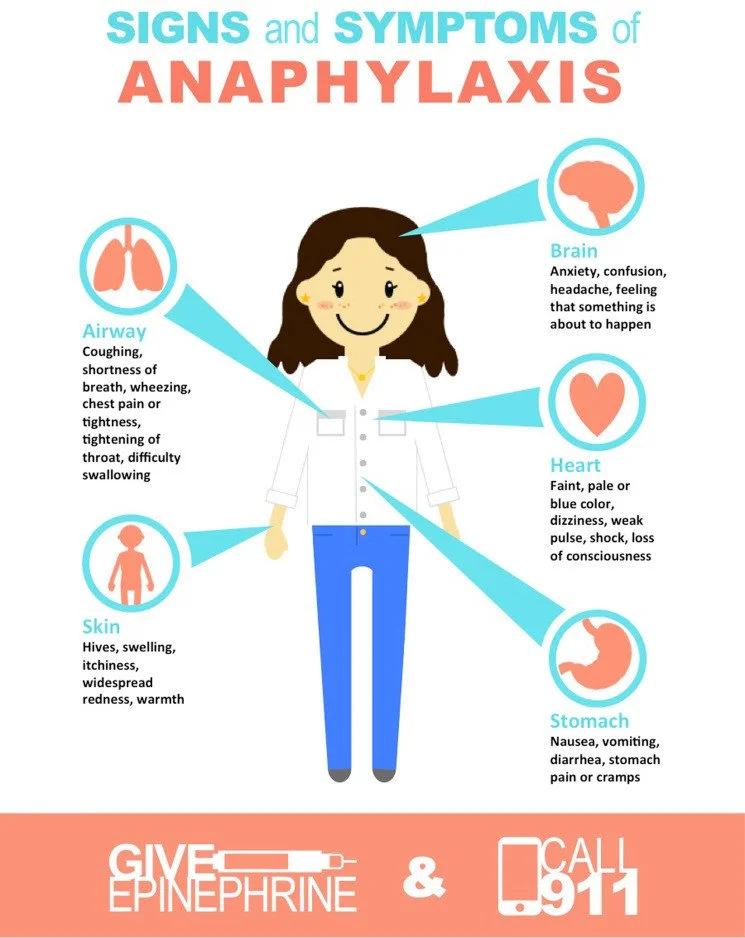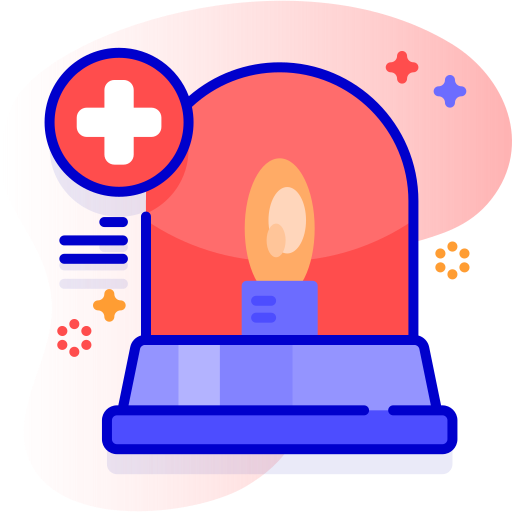Anaphylaxis
Sniffling, sneezing, and itching are the worst that allergies can be - right? Unfortunately, they can be so much worse.
There's a whole spectrum of allergy symptoms, but the worst is anaphylaxis (also called anaphylactic shock). If untreated, anaphylaxis is fatal!
Like any other allergy, anaphylaxis is the result of the immune system overreacting to an allergen that is often something harmless like a peanut, but the body attacks it with the same intensity as a powerful pathogen. Unlike seasonal allergies, the symptoms include multiple organ systems at once.
These symptoms may include:
Respiratory: difficulty breathing, shortness of breath, wheezing, coughing, chest tightness, hoarse voice
Circulatory: low blood pressure, fast or slow heart rate
Skin: rash, itching, flushed skin, swelling
Gastrointestinal: vomiting, nausea, diarrhea, abdominal cramping
Nervous system: dizziness, fainting, headache, confusion, anxiety
Loss of bladder control
Pain
Runny nose
Swollen tongue or throat
It does it fast too: within a few minutes of contact with an allergen! The speed that these reactions have is why it's so important to carry an Epipen (preferably two) with you if you have a severe allergy and why you should go to an emergency room (preferably by ambulance) if you have an anaphylactic reaction. Delaying medical treatment even by 5 or 10 minutes can drastically alter your outcomes. It's always better to prevent the reaction from progressing than it is to treat the results of the reaction being able to run rampant.
In worst-case scenarios, anaphylaxis may lead to:
Respiratory arrest, often due to swelling closing off the airways
Cardiac arrest
Shock
Coma
Death
Common Triggers
Though seasonal allergies are the most well known type of allergies, they typically won't cause anaphylaxis. The most common allergens for anaphylaxis are:
Food allergies: the "big 9" of most common allergens
Tree nuts
Peanuts
Wheat
Soy
Milk
Sesame
Shellfish
Crustaceans
Fish
Drugs: often antibiotics like penicillin, meropenem, and amoxicillin
Latex
Insect bites: often bees or wasps
Peanuts are statistically the most lethal allergen
Treatment
Treatment first begins with stopping the reaction from progressing with epinephrine (found in Epipen auto injectors). This medicine works in several ways: raising the blood pressure, relaxing the muscles in your airway, and relaxing the muscles of your stomach, bladder, and intestines. This will stabilize you to get to a hospital to then treat the allergic reaction. Epipens don't treat the allergic reaction itself, just stabilize you and buy you time to seek emergency medical treatment.
Once you are at the hospital, your healthcare providers will treat you with medications such as steroids. You may also receive breathing treatments and other supportive care. Most patients will be monitored for at least a couple of hours, but many will need to be hospitalized for at least one night.





